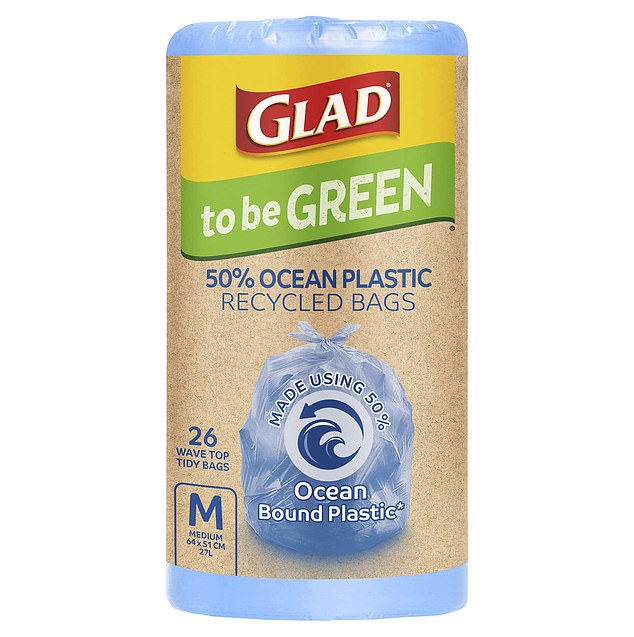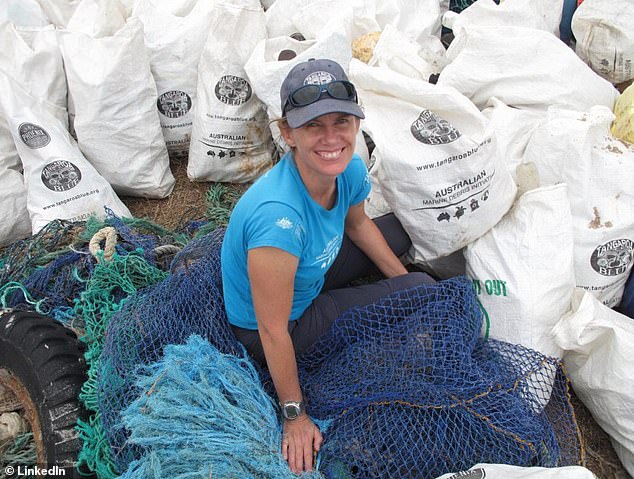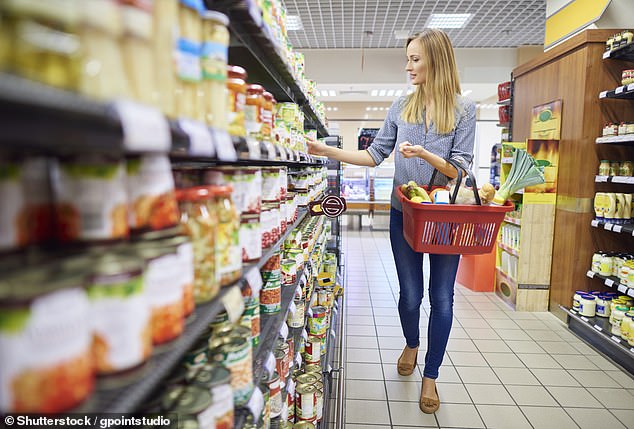Shoppers are being bombarded with false and misleading claims that everyday products are helping the environment, an investigation has found.
Senators are examining the unscrupulous practice of greenwashing, whereby companies convey false impressions that their products are environmentally sound.
They have heard that consumers are lied to and manipulated, and that product manufacturers and retailers get away with it, because Australia lacks effective regulations.
On Friday, the inquiry heard how consumers are being tricked into buying products – sometimes at high prices – that make environmental claims that cannot be substantiated.
Senators scrutinizing unscrupulous greenwashing practices at supermarkets were told on Friday that many environmental claims cannot be substantiated (stock photo)
Heidi Tait is the founder of the Tangaroa Blue Foundation, which works to prevent, remove and track marine debris in Australia.
He said Australians have been offered products that claim to use 100 or 50 per cent recycled ocean plastic, but chemically that is impossible due to the degradation and pollution that occurs when plastics spend time in the sea.
Ms Tait said three per cent or less was the maximum level achievable for functional packaging, and described so-called recycled ocean, or ocean-bound, plastic as “the model of greenwashing”.
The consumer watchdog recently launched proceedings in the Federal Court against one such product: Glad recycled rubbish bags which boasted of being made from “50 per cent ocean plastic” or “50 per cent plastic from of oceans”.
The fine print on the packaging revealed that the recycled plastic used to make the liners may never have been in the ocean and could have been torn from the land in developing countries, up to 50 kilometers from the sea.
Representatives from The Clorox Company, which makes Glad products, responded to Friday’s inquiry and said the trash bags had been removed from sale in Australia and New Zealand.
That occurred in June 2023, after the Australian Competition and Consumer Commission announced in April that it was taking Clorox to court for alleged violations of Australia’s consumer laws.

The consumer watchdog recently launched proceedings in the Federal Court against one such product: Glad’s recycled rubbish bags, which boasted of being made from “50 per cent ocean plastic” or “50 per cent plastic coming from oceans.”
Company executives said they could not comment on the matters now before the court, but generally speaking, it was “not unusual” for Clorox to change its marketing claims over time based on consumer feedback.
They also complained that “vague regulations” and a lack of useful definitions had created challenges for the company and other similar companies.
“Companies really want to do the right thing,” said Niki King, vice president and chief sustainability officer at Clorox.
“To date, it has been a challenge because the regulation has not been there to guide us properly.”
Ms Tait, of Tangaroa Blue, said it was good to see the ACCC act after a sweep of the internet found 57 per cent of the 247 companies reviewed had made environmentally-related claims.
“Consumers may pay a premium for products that do not meet their environmental demands,” he said.
Tait said the result was that buyers were offered “false solutions” that hurt manufacturers with products that actually reduce environmental impact.
The investigation continues.

Tangaroa Blue Foundation founder Heidi Tait (pictured) described so-called recycled ocean, or ocean-bound, plastic as “the model of greenwashing”.

